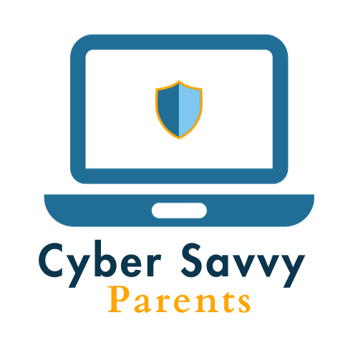A Parent's Guide to Understanding Cyberbullying
In the age of smartphones and social media, the internet has become a vast digital playground for our children. While this brings countless opportunities for learning and connection, it also opens the door to a darker side: Cyberbullying


Cyberbullying is common, with more than one in four primary school children experiencing cyberbullying in the past year. It's even more common among secondary school children, with up to 40% reported being cyberbullied.
As parents, we must equip ourselves with knowledge about cyberbullying, as well as the psychological impact of it. In this post, we discuss cyberbullying, its impacts, and what you can do to empower your children to navigate the digital jungle safely.
What is Cyberbullying?
Cyberbullying is any form of bullying that takes place electronically, typically through social media, text messages, or online platforms. It can manifest as mean comments, spreading rumours, sharing embarrassing photos, or even impersonation.
Cyberbullying is typically psychological (rather than physical), but it is often part of a broader pattern of conventional bullying. That is to say that young people being bullied online may find that their bullies target them offline too.
The online world, where interactions are often disconnected from face-to-face consequences, allows bullies to operate with a perceived anonymity that makes them even bolder in their actions. And, this anonymity intensifies the psychological harm inflicted on victims.
Is Cyberbullying a Crime?
Like ‘traditional’ bullying, serious forms of cyberbullying may be considered a crime. Examples include:
persistent bullying
harassment
inappropriate sexual suggestions
racism
invasion of privacy
In Ireland, several laws may provide legal protection against cyberbullying. These are:
1. The Non-Fatal Offences Against the Person Act, 1997, which forbids persistent harassment ‘by any means’ including using phones. People have been convicted under this law for harassment both through online posts and via phones and text messages.
2. The Post Office Amendment Act 1951 (amended 2007) prohibits using phones to make threatening, obscene, or nuisance calls or messages.
3. The Harassment Harmful Communications and Related Offences Act 2020 forbids “distributing, publishing, or threatening to distribute or publish intimate images without consent with the intent to cause harm. It also prohibits the “recording, distributing, or publishing [of] intimate images without consent”, even if there is no intent to cause harm.
4. The Child Trafficking and Pornography Act, 1998 means it is illegal to produce, handle, possess, or distribute child abuse materials (also called child pornography). Under this law, a ‘child’ is someone who is under the age of 18 years.
The laws are similar in the UK, where cyberbullying may be a criminal offence if it causes ‘alarm or distress’ to the victim, under the Harassment Act 1997; or if it is deemed ‘grossly offensive’ under the Malicious Communications Act 1988 and the Communications Act 2003.
The Psychological Impact of Cyberbullying
The impact of cyberbullying on children and teens can be profound and extends far beyond the digital world. Constant exposure to online harassment, mean-spirited comments, and the invasion of personal space can lead to:
stress and anxiety
depression
poor self-esteem
confusion around identity and belonging
a sense of isolation
feeling powerless or helpless
difficulties at home or with friends
a decline in academic performance
The constant exposure to negativity and hostility may reshape a child's worldview, affecting their ability to trust others and hindering the development of healthy relationships. In extreme and persistent cases,
Cyberbullying can even lead to thoughts of self-harm or suicide. This is why it is so important that we – parents and educators – address and ease the emotional challenges posed by cyberbullying.
Recognising the Signs of Cyberbullying
Very often, children don’t tell their parents that they are experiencing cyberbullying. Research shows that 46% of younger children and 67% of secondary school children who have been bullied online in the past year didn’t tell an adult.
Therefore, parents must learn to recognise the subtle indicators of cyberbullying. One marked indicator can be changes in online behaviour, including:
incidences of anger or sadness after using technology
sudden disinterest in tech
rapidly changing screens when you enter the room
being more secretive about their phone or laptop use
However, cyberbullying will also affect other areas of their life too. Other indicators that something is going on include:
changes in behaviour, such as avoiding school
mood changes
seeming more anxious or ‘on alert’
sleeping more or less than usual
eating more or less than usual
a loss of interest in things they once enjoyed
withdrawal from social activities
isolation from friends and family
a decline in academic performance
Because young people can go to great lengths to hide cyberbullying from adults, parents must communicate with their kids often about tech use and what online behaviours are and are not okay. Work to create a safe space for your child to share their experiences, without fear of punishment.
What Can I Do if My Child is Being Cyberbullied?
If your child is experiencing cyberbullying, it can be helpful to:
Offer comfort and support, which is empathic and non-judgemental.
Reinforce that the bullying is not your child's fault.
Work with your child to come up with a plan to deal with this, and let them know if you plan on reporting to someone.
Gather evidence – take screenshots of threatening messages, pictures, and texts, and keep a written log of incidences and their impact.
Block the sender to prevent further abusive contact.
Encourage your child not to respond to the cyberbullying – this is what the bully wants.
Tell your child’s school or youth organisation if the bullying involves another person from that school or group.
If the cyberbullying is very persistent or serious, or potentially criminal in some way, contact your local police station.
Consider therapy for your child, to work on any feelings of anxiety, depression, and self-harm, and to help them build their self-esteem, resilience, and assertiveness.
Prevention
Prevention is the best protection against the harmful effects of cyberbullying. Prevention strategies include:
Regular, open communication with your child about tech use and acceptable and unacceptable behaviours online.
Limited access to technology – use parental controls, have a policy about parental access to their child’s online communications, and consider keeping tech in a public area of the house, and restricting Wi-Fi access at night.
Being part of your kids' online life – become their friend or follow them on social media sites (and set ground rules about your interaction with them on these media).
Having explicit smartphone and social media contracts with your kids that you develop together.
Working on their self-esteem, resilience, and assertiveness in both the online and offline realms, to empower them to protect themselves against bullying.
Sometimes, parents baulk at the idea of limiting their kids’ tech use. However, with collaboration and open conversation, children often are more on board with this than their parents may think. After all, children feel safer with boundaries.
A survey published in 2022 that reported on adolescent attitudes to media use, found that the young people surveyed generally felt good about the rules their parents enforced around tech use. Over half (54.1%) believed these rules were “just the right amount of restrictive.”
What Else Can I Do?
The online world can have huge benefits for all of us. However, there are inherent dangers that young people and their parents need to be aware of – and cyberbullying is just one of those.
If we have an understanding of cyberbullying from both the perspectives of cybercrime and the emotional impact of online bullying, we can guide our children through the complexities of the online world.
If you would like to know more about how to prevent or deal with cyberbullying, why not book one of our upcoming online talks? Talks are posted on our Contact and Booking page, or you can drop us an email with any questions you may have.
(Please note that the legal information in this post is correct at the time of writing, January 2023. However, the law in this area is constantly evolving and changing.)


